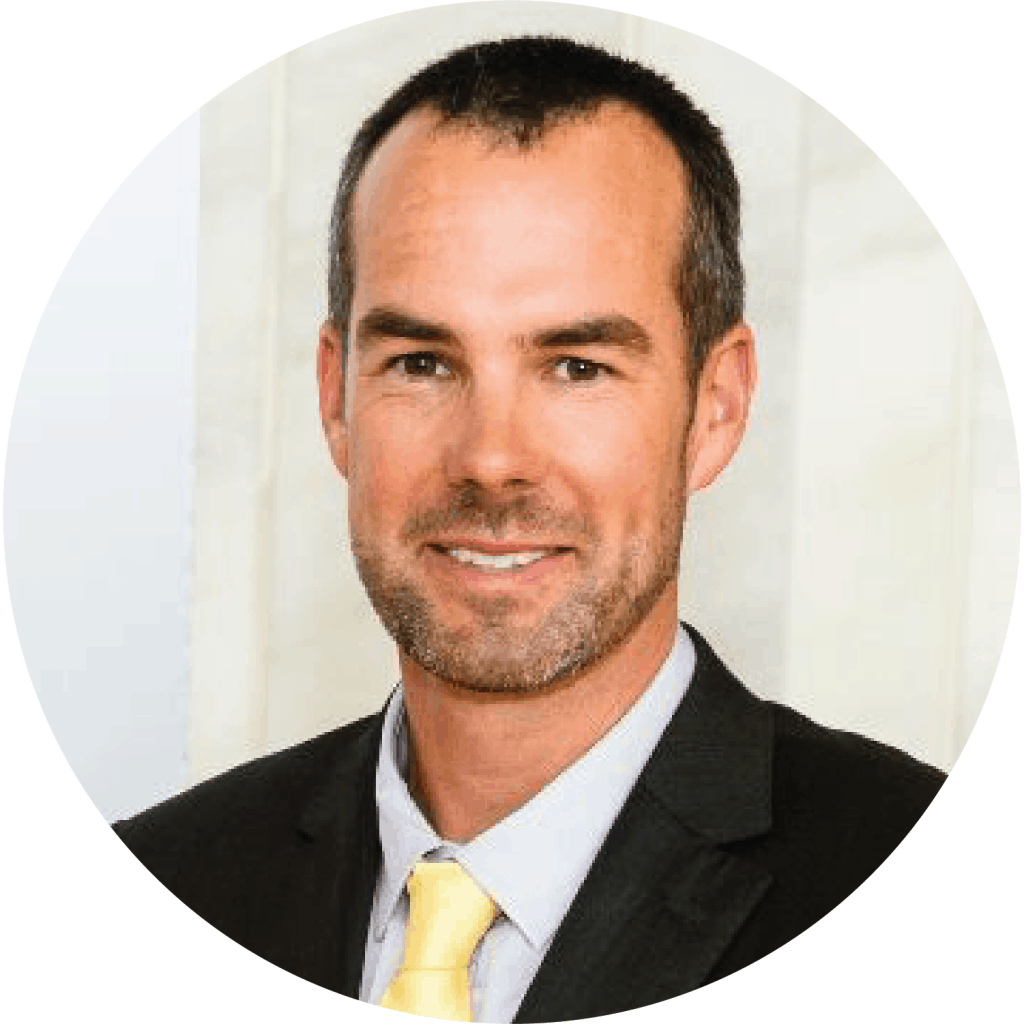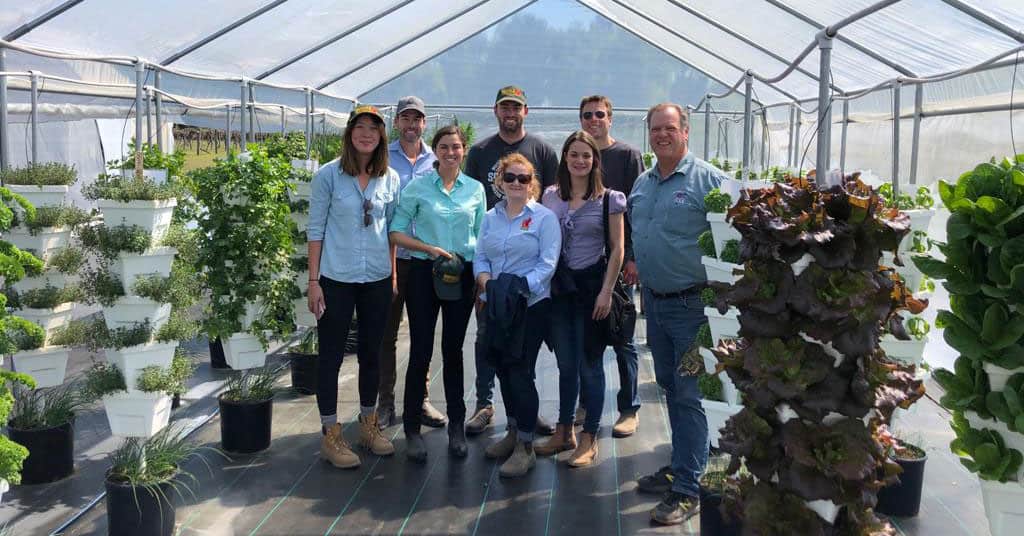
GFP Brazil: Seven International Scholars, Six Weeks, Five Countries
Washington DC
At the conclusion of the Nuffield conference in Iowa, our GFP group left the melting snow and ice for Washington DC. The political engine in the US is both impressive and scary. We met with many agricultural lobby groups and the US Department of Agriculture. Trade is at the top of the agenda with many still supporting the full fair and free trade message despite the pain inflicted on the rural communities by the current trade war with China. Interim subsidy programs are in place to keep farmers happy but on the day of our departure the administration announced cuts to farmer support programs, including crop insurance, in an effort to cut spending. My key learnings came from the experienced Washington players.
- Focus your messaging on the ‘movable middle’ population
- Having experience being lobbied makes you a better lobbyist.
- Politics is all about networks
- The NZ Embassy in Washington has a great bar in the basement for networking.
Florida
Down the coast in Florida we saw a state that is aiming to take over from California as the produce capital of the US. We saw blueberries, carrots, tomatoes, sweetcorn, nuts all grown on large scale and timed to fit into a value window where, for a few weeks each year, Florida is the source of produce for the major US supermarkets. Most family farmers are at the mercy of brokers and manufacturers for pricing but a few are looking to innovative marketing ideas of their own (Satsuma chapstick anyone?).
I was very impressed with the community extension service of the University of Florida. Their experienced agents have created outstanding demonstrations, facilities, programs and guides to pass on the University’s research and knowledge to farmers and the general community. Despite the US administration’s current views on climate change, the University is performing research on GHG mitigation, particularly with animals, that we should watch closely. Key Florida lessons
- Controlling more of the value chain is more profitable but requires more capital, risk and knowledge.
- Focus on your window of value in the market.
- Don’t be afraid to try something completely new
- Farm near a beach – it helps with managing stress

Mexico
The visit to Mexico was very short with two days spent at CIMMYT, the wheat research facility near Obregon. The farmer run facility is completely a not-for-profit that develops parent genetics of wheat to breeders around the world. They also run plant breeder training programs and help the local farmers of Sonoma State with everything from agronomic advice to irrigation infrastructure. We also visited a local grain cooperative and finished off with a walking tour of Mexico City. The history of this city is amazing having being built on the ruins of the Aztec empire. The blending of the native bloodlines with the colonising Spanish is creating a modern challenge in defining the nations identity not unlike our own.
Key Mexican lessons:
- Farming doesn’t always have to be about making a dollar (or peso).
- There is a bright future for well-run cooperatives.
- Pride in your identity is a powerful marketing message.
Brazil
Our Brazilian leg started in the capital Brasilia, a city of 4 million people that was just farmland sixty years ago. It was founded as the development of Brazilian land headed east away from the coast during a time when much of central and northern Brazil was opened up for agriculture. In the 1970s Brazilian farming families from the south moved north to open up farmland for cropping with new technology and financial incentives. With so much land available, family farms in this area now often exceed 50,000 ha.
With land development came pressure on natural resources, particularly the rainforest and soils. Brazilian farmers and government have responded quickly to these issues with 60% of all crops in Brazil now using no till systems and a Forestry Code that protects large tracts of the native rainforest. There is also a great awareness among farmers of how the Amazon forest contributes to the highly valued rainfall patterns in Brazil.
We saw a range of highly developed, innovative and massive farming operations that are held back by a lack of political stability and logistics to move produce to port. If these two issues were to be resolved, Brazil would rival any country in the world as an agricultural powerhouse.
Key lessons from Brazil:
- Our natural environment is important for our own success and for our public reputation. We must work harder to protect it. If Brazil can do it so can we.
- NZ exports competing on price or volume has a limited life
- Genetic engineering is at the core of Brazilian agriculture development. Would we be left behind without it?
Netherlands
Our tour of the Netherlands focused on the centre of the country with visits to pig, dairy, flower and vegetable farms. To me the country was one big garden and a testament to the innovative thinking of the Dutch – intricate drainage networks, reclaimed land, robotic dairies, wind turbines, fields of glass houses (even a university inside a glass house).
Digging into the success of Dutch agriculture two key factors emerge.
- Animal based agriculture in the Netherlands relies on cheap imported (GE) grains through the local port of Rotterdam, Europe’s largest seaport.
- A European customer base of over 500 million people all within easy trucking distance of the Netherlands and all within a single customs market (EU).
The Netherlands has an input based environmental regulation (e.g. stocking rate and fertiliser rate limits) compared to New Zealand’s output based regulation (you can do what-ever you like so long as you don’t leach above a certain number). The result appears to be a tick box exercise to get the environmental subsidy without a deeper understanding of why the practices are important or what else farmers could be doing to improve environmental outcomes. For example soil moisture monitoring was not common under irrigation nor were buffer strips used to prevent sediment runoff.
Key lessons from the Netherlands:
- Technology and innovation can overcome nearly any obstacle
- Look for your unique advantages and exploit them.
- Be wary of statistics – Netherlands is Europe’s largest ag exporter but only because it imports a third of that produce through Rotterdam (the Netherlands exported $500 million of bananas last year but didn’t grow a single one.)
- Output based environmental regulation is a greater challenge to implement but creates a better long term outcome than input based regulation.
New Zealand
The final week of the GFP was spent in the Nelson and Marlborough regions touring previous Nuffielder’s innovative farming operations.
Andy Elliot (2018 Scholar) introduced us to aquaculture at the Cawthron Institute and Wakatu. Cawthron Institute is a pioneer in shellfish spat production. Wakatu, a shining example of the booming Maori economy, grows out the shellfish in the Marlborough Sounds and has developed its story into a successful brand and 500 year business plan.
Julian Raine (1997 Scholar) showed us Wai West Horticulture, a multiple family owned business growing apples, kiwifruit and boysenberries near Nelson. He is currently exploring nutraceutical applications of the fruit in China. Julian’s other projects include his role on the Primary Sector Council (a concept the other scholars were very impressed with) and Oakland Dairies. Oakland Dairies milks a small herd on the Nelson city boundary and provides most of the food service outlets in Nelson with A2 milk in glass bottles. There are also a few local vending machines which are very popular with the locals. His Aunt Jeans brand is distributing the milk nationwide.
Murray King (2003 Scholar) has strong ties to dairy and is particularly proud of his latest joint venture Appleby Farms, an ice cream producer in Nelson. Appleby has clocked up a string of successes since launching in 2017. A New Zealand gold medal ice cream award within 12 months and is now available in 380 stores in New Zealand. I would recommend the Bad Boys and Berries (Boysenberry) flavour!
John Palmer (1989 Scholar) has had the odd governance role in New Zealand but is now focused on his family farm growing pip fruit, hops and kiwifruit in Nelson. He also introduced us to the McCashin family hop operation, an inspiring story of growth and innovation in a niche market.
Hamish Murray’s (2019 scholar) family farm Bluff Station near Kekerengu suffered massive damage in the Kaikoura earthquake but is rebuilding into a strong, multigenerational family business. As is John Murphy (2014 Scholar) who is growing family business Marlborough Garlic into a producer of high quality garlic and shallots while always looking for new opportunities (keep an eye out for Garlic Noir).
A flying visit to Wellington to visit Ministers O’Conner and Shaw to talk the future of farming, and stops at MPI’s economic research unit and Beef and Lamb to discuss strategy and Taste Pure Nature left us all feeling very impressed with the state of NZ ag and the other GFP scholars looking at the local real estate ads in the hopes of moving here!
Key lessons from New Zealand
- Farmers tend to like working on their own but the success of the business we saw relied on strong partnerships and teams.
- Tell your story using six words (Thanks for the advice Julian!)
- Kiwi hospitality is second to none.
The GFP experience highlighted to me the diversity in opportunities and challenges that exist in agriculture around the world. Ultimately most agricultural markets were trying to do two things – at a macro level, feed 9 billion mouths by 2050 while at a micro level, add value to produce to generate greater profitability. And achieve both while minimising environmental impact.
New Zealand is as well placed as any nation to achieve this goal.
Many thanks to the many farmers, businesses, organisers and sponsors who made this experience possible and to my GFP travel mates who shared many insights, experiences and laughs along the way.
I look forward to my personal travel where the real work begins!

Follow Cam Henderson on Twitter @camohenderson
Follow the links below to read the rest of the Global Focus Programme Reports from 2019:

























